Definition
Chronic kidney disease (CKD) is defined as the presence of kidney damage, manifested by abnormal albumin excretion or decreased kidney function, quantified by measured or estimated glomerular filtration rate (eGFR) that persists for more than 3 months.
CKD is typically a progressive disease. It is defined as
- Reduction of kidney function is defined as an eGFR < 60 mL/min/1.73 m2 for > 3 months
AND/OR
- Evidence of kidney damage, including persistent albuminuria is defined as > 30 mg of urine albumin per gram of urine creatinine for > 3 months.
What are kidneys and why are they important?
You have two kidneys. Each kidney is about the size of your fist. They are located near the middle of your back, just below the rib cage. Healthy kidneys do many important jobs. They:
- Regulate the composition and volume of blood, remove metabolic wastes in the urine, and help control the acid/base balance in the body.
- They produce erythropoietin needed for red-blood cell synthesis and activate vitamin D needed for calcium absorption and bone health.
Structure of kidney
Think of your kidneys as a coffee filter. When you make coffee, the filter keeps the coffee grains inside, but allows water to pass through. Your kidneys do something similar. They keep the things you need inside your body, but filter out things you don’t need.
Each of your kidneys has about 1.5 million filters called nephrons. Nephrons remove wastes and extra fluid from your blood in the form of urine. The urine flows through two tubes, called ureters, to the bladder. The urine is stored there until you urinate. The wastes come from the breakdown of what you eat or drink, medicine you take, plus normal muscle activity
Structure of nephron
Staging of CKD
The different stages of CKD form a continuum. The stages of CKD are classified as follows:
Stage 1: Kidney damage with normal or increased GFR (>90 mL/min/1.73 m 2)
Stage 2: Mild reduction in GFR (60-89 mL/min/1.73 m 2)
Stage 3a: Moderate reduction in GFR (45-59 mL/min/1.73 m 2)
Stage 3b: Moderate reduction in GFR (30-44 mL/min/1.73 m 2)
Stage 4: Severe reduction in GFR (15-29 mL/min/1.73 m 2)
Stage 5: Kidney failure (GFR <15 mL/min/1.73 m 2 or dialysis)
History behind CKD
Richard Bright (1789-1858), is widely regarded as the founder of the specialty of nephrology. He gave his name to Bright’s disease, which was used for over 100 years first as a term for any type of kidney disease, and later particularly for glomerular diseases.
Epidemiology
About one in ten people have chronic kidney disease. African Americans, American Indians, Hispanics, and South Asians, particularly those from Pakistan, Sri Lanka, Bangladesh, and India, are at high risk of developing CKD. African Americans are at greater risk due to a prevalence of hypertension among them. As an example, 37% of ESKD cases in African Americans can be attributed to high blood pressure, compared with 19% among Caucasians.
Chronic kidney disease was the cause of 956,000 deaths globally in 2013, up from 409,000 deaths in 1990. In Canada 1.9 to 2.3 million people were estimated to have CKD in 2008. The U.S. Centers for Disease Control and Prevention found that CKD affected an estimated 16.8% of U.S. adults aged 20 years and older in the period from 1999 to 2004. UK estimates suggested that in 2007 8.8% of the population of Great Britain and Northern Ireland had symptomatic CKD.
Causes and risk factors of CKD
- High blood pressure
- Glomerulonephritis
- Pyelonephritis
- Prostate or kidney stones
- Pain-killing drugs (analgesics)
- Diabetes
- Hypertension
- Family history of kidney failure
- 60 years or older
- Obese (body mass index ≥ 30)
- Smoking
- Cardiovascular disease
- HIV infection
- Immunological diseases
Complications of chronic kidney disease
As eGFR declines, complications occur more commonly and are more severe. These may include
- Cardiovascular disease (CVD) and dyslipidemia
- Anemia due to impaired erythropoiesis and low iron stores
- Mineral imbalance and bone disorder (calcium, phosphorus, and vitamin D)
- Hyperkalemia
- Metabolic acidosis
- Malnutrition (low serum albumin)
- Fluid and salt retention, often associated with accelerated hypertension
Symptoms of chronic kidney disease
In the later stages of kidney disease, you may:
- Feel tired or short of breath
- Have trouble thinking clearly
- Not feel like eating
- Have trouble sleeping
- Have dry, itchy skin
- Have muscle cramping at night
- Need to go to the bathroom more often, especially at night
- Have swollen feet and ankles
- Have puffiness around your eyes, especially in the morning
Diagnosis of chronic kidney disease
Doctor performs a physical exam, also checking for signs of problems with your heart or blood vessels, and conducts a neurological exam. For kidney disease diagnosis, you may also need certain tests and procedures, such as:
- Blood tests. Kidney function tests look for the level of waste products, such as creatinine and urea, in your blood.
- Urine tests. Analyzing a sample of your urine may reveal abnormalities that point to chronic kidney failure and help identify the cause of chronic kidney disease.
- Imaging tests. Your doctor may use ultrasound to assess your kidneys’ structure and size. Other imaging tests may be used in some cases.
- An ultrasound or CT scan to get a picture of your kidneys and urinary system. These pictures show the size of your kidneys, and whether they are too large or too small. They also show whether you have any tumors, kidney stones, or cysts.
- Removing a sample of kidney tissue for testing. Your doctor may recommend a kidney biopsy to remove a sample of kidney tissue. Kidney biopsy is often done with local anesthesia using a long, thin needle that’s inserted through your skin and into your kidney. The biopsy sample is sent to a lab for testing to help determine what’s causing your kidney problem.
Identifying and Evaluating CKD
Estimated Glomerular Filtration Rate (eGFR)
- eGFR provides an estimate of kidney function.
- eGFR reflects the total filtration by all functioning nephrons.
- As nephrons are damaged or destroyed, eGFR declines.
- The results of eGFR (mL/min/1.73m2) gives the following normal values:
- Not diagnostic of CKD > 60
- CKD 15– 59
- Kidney failure < 15
Urine Albumin-to Creatinine Ratio (UACR)
- It is the referred measure for screening, assessing, and monitoring kidney damage.
- It may be the earliest sign of glomerular diseasesincluding diabetic kidney disease.
- Other common names include
- Microalbumin
- Urine albumin
- Albumin-to-creatinine ratio (ACR)
- Microalbumin/ creatinine ratio
- The result (mg/g) approximates milligrams of albumin excreted in 24 hours.
- Normal 0 – 29
- Albuminuria > 30
Treatment and medications
There’s no cure for CKD, but treatment can help relieve the symptoms and stop it getting worse.
Your treatment will depend on how severe your kidney disease is.
The main treatments are:
- Lifestyle changes to ensure you remain as healthy as possible
- Medication to control associated problems such as high blood pressure and high cholesterol
- Dialysis– treatment to replicate some of the kidney’s functions; this may be necessary in advanced CKD
- Kidney transplant– this may also be necessary in advanced CKD
Prevention of chronic kidney disease
Stop smoking
Smoking increases your risk of cardiovascular disease, including heart attacks or strokes, which is associated with a higher risk of kidney disease.
Healthy diet
- A balanced diet should include:
- Plenty of fruit and vegetables – aim for at least five portions a day
- Meals based on starchy foods – such as potatoes, bread, rice or pasta
- Some dairy or dairy alternatives
- Some beans or pulses, fish, eggs, meat and other sources of protein
- Low levels of saturated fat, salt and sugar
Cut down on alcohol
Drinking excessive amounts of alcohol can cause your blood pressure and cholesterol levels to rise to unhealthy levels.
- Men and women are advised not to regularly drink more than 14 units a week
- Spread your drinking over three days or more if you drink as much as 14 units a week
Exercise regularly
- Regular exercise should help lower your blood pressure and reduce your risk of developing kidney disease.
- At least 150 minutes (2 hours and 30 minutes) of moderate-intensity aerobic activity such as cycling or fast walking every week is recommended.
Be careful with painkillers
- Kidney disease can be caused by taking too many non-steroidal anti-inflammatories (NSAIDs), such as aspirin and ibuprofen, or taking them for longer than recommended.
 Diseases Treatments Dictionary This is complete solution to read all diseases treatments Which covers Prevention, Causes, Symptoms, Medical Terms, Drugs, Prescription, Natural Remedies with cures and Treatments. Most of the common diseases were listed in names, split with categories.
Diseases Treatments Dictionary This is complete solution to read all diseases treatments Which covers Prevention, Causes, Symptoms, Medical Terms, Drugs, Prescription, Natural Remedies with cures and Treatments. Most of the common diseases were listed in names, split with categories.
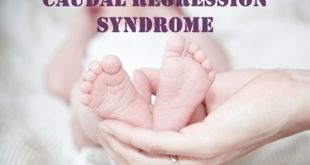

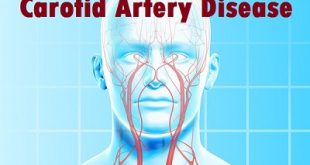

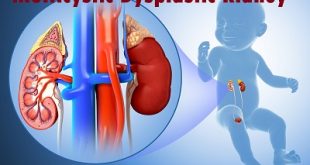
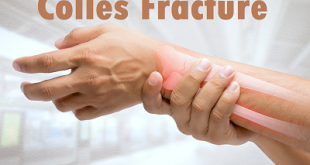
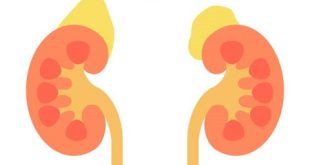

helpful thanks.
the information containe life saving
Good evening my son is 14 years old he is having kidney infection right now he is having pain in his stomach around his narvel please what medicine will I give him to reduce the pains.
It is better to diagnose with a Nephrologist near by your residence. Because you should know the degree of infection in kidney of your son. Depending on that results you can go for further treatment options.
if one of the kidneys is getting damage will it be detected in the blood test.
Yes you can definitely come to know the problems of your kidney functions through blood tests and through imaging studies you can know about the Structural damage into the kidneys.
how about the urinary tract infection?
It is an infection caused by a bacteria that invades into the urinary tract. The type of bacteria which usually cause UTI is E.coli. There are different names for UTI which are depending on where they occur:
Bladder infection – cystitis
Urethra infection – urethritis
Kidney infection – pyelonephritis
notes are good i read and learn easily without any difficulties
knowledge
hay actually my father having problem of kidney his kidney not work properly.
n now his
creatinine is 7.0
nd
urea is 132
so i want to say dat he need for dialysis or not plz give me some bst advice.
thanku.
Please consult a nephrologist to confirm the proper function of your father’s kidney.
Good morning. i have been experiencing aches in both of my kidneys and my legs are also affected. It has been months, probably 6 months since it started to ache. The doctor give me an antibacterial but it doesnt subside, does this mean it is in serious stage? :'(
Please consult a good nephrologist to diagnose your problems.
I am 34yrs. Some months ago, started feeling burning on my lower life side of my back and as time goes it traveled in back bone. Now i am experiencing many in my body. Can you please help me?
Please consult a nephrologist to avoid the development of serious conditions. The symptoms you are saying might be the causes of kidney problems.
its better to consult doctor to get rid of pain.
please give me the information about urinary blood at the start of kidney stone
Kidney stones are one potential cause of blood in the urine (also known as hematuria). As the stones grow they may eventually become large enough to irritate either the lining of the kidney or the ureter (the tube connecting the kidney to the bladder) and cause injury to the local cells and capillaries. This makes blood leakage in the urinary tract.
Aguiring,about, protien, in urine,and treatment.
Proteinuria is not a specific disease. So its treatment depends on identifying and managing its underlying cause. If that cause is kidney disease, appropriate medical management is essential. In mild or temporary proteinuria, no treatment may be necessary. Drugs are sometimes prescribed, especially in people with diabetes and/or high blood pressure. These may come from two classes of drugs:
1. ACE inhibitors (angiotensin-converting enzyme inhibitors)
2. ARBs (angiotensin receptor blockers)
my mother creatinine level 4.3. What is healthy nutrition for her?
Creatinine level 4.3 is much higher than the normal range which usually means 50 % of renal functions are damaged for kidney disease patients. In order to control and reduce the level, your mother has to develop a balanced diet plan.
Low-protein and low-salt diet can help reduce the burden on your kidneys. Besides, you should also pay attention to the intake of fluid, fat, phosphorus and potassium. As for the amount of every nutrition you can take in, it should depend on your medical condition.
You are suggested to take more fruits and vegetable and avoid the foods that high in creatinine. Not all fruits and vegetables are the good choice, you are suggested to eat more of the following foods:
Cabbage, Cucumber, Omega3-rich foods, Raw onions, Turnip, Garlic, Radishes, Cauliflower, Lettuce, Carrots, Oat bran, Tofu, Soy milk, Sprouts.
Besides, You need to keep your protein levels in check in order to keep your kidneys healthy from the inside.
After having a routine blood test I was diagnosed with kidney disease 3 +. I do not have high blood pressure, or heart disease. I do not take nsads. I have seen a nephrologist, and he confirmed the diagnosis. I I have had a second panel done and will see the doctor Jan 15th. there has been an increase indicated. No help on diet to be taken. Do I need a new nephrologist?
You can ask to your doctor about your diet plans or you can get help from a dietician.
I have kidney infection,what kind of food is recommended for me
Apple Cider Vinegar, whole grains and cultured dairy products,
my left renal cyst measure 3.1cm,do l have the risk of me losing my kidney?
Please consult a nephrologist.
my Dad leg has swallowed up and sometimes it gets down and his blood pressure is high and I took him to a doctor who said he has kidney problem and recommend some pills for him like kidney care and Apollo syrup please I need your advice on what next to do
Please consult a doctor.
Very informative with easy to understand diagrams for the lay person, student, and non-specialized practitioner, in a concise, easy to understand format.
Thanks to create this dictionary.
It is very easy to understanding and
what is the content. it is very useful to me.
Thanks to create this dictionary.
I swear you done a good job.
keep it up.
my brother was diagnosed of pyelonephritis and his doctor prescribed some antibiotics for him to take, yet there is no improvement, please what step can we take next? Thanks
Please consult a doctor as soon as possible.
This dictionary very useful to me. lot of thanks. my brother in law was affected by kidney failure. now he is doing dialysis. which type of food can we take. please suggest.
Please consult a nutritionist.
So please does it have some medicine to take
Please read in the medications.
Last year my mother has 519 creatinine and 16 urea if she take lasix she has itching skin please help her, is it possible if you have CKD but you have normal kidney size please help me
Please consult a nephrologist.
I really appreciate, this dictionary is so helpful, thanks so much and more grease your elbow.
my mum is having swelling legs and ankles .please give me the best advice
Please consult a doctor asap to reduce future risk.
my mother age 74 diabetic patient, her serum creatinine level is 5.2. it was diagnosed in February that time creatinine level was 3.9, then using ciprofloxicin it down 3.2, then after some days it went at 4.5, then 6, then 6.6, then 6 then 6.7 and last was 5.2. what’s solution ?
Please consult a doctor for appropriate prescription.
increase level of blood urea and serum creatinine which treatment given to patient to control the level
Well explanations,big thanks to all of you healthy adviser and they whole team, please keep it up
sir my dad aged 70yrs had amputation of left leg since from 4yrs due to gangrene at that time serum creatinine was ,1.6 till now he normal but there is swelling in hands and arms and face please sggest me some treatment sir
please consult a doctor for appropriate prescription.
please sir am diabetic person am having pains in my back , when I get to test the Dr said is pyelonephritis and elatulence any drugs for me thanks
how can I lower down creatinine and keep it on a constant level
Dietary fiber can manage constant creatinine levels and helped lower creatinine levels in people with chronic kidney disease.
It’s very important education forever.
keep this in mind.